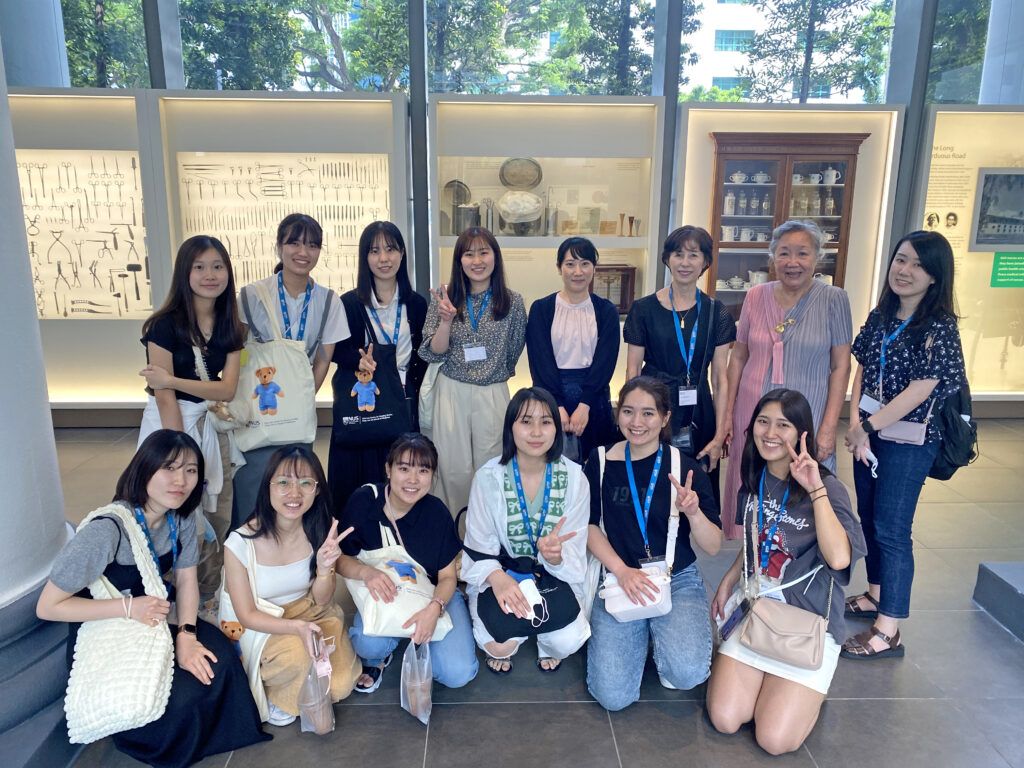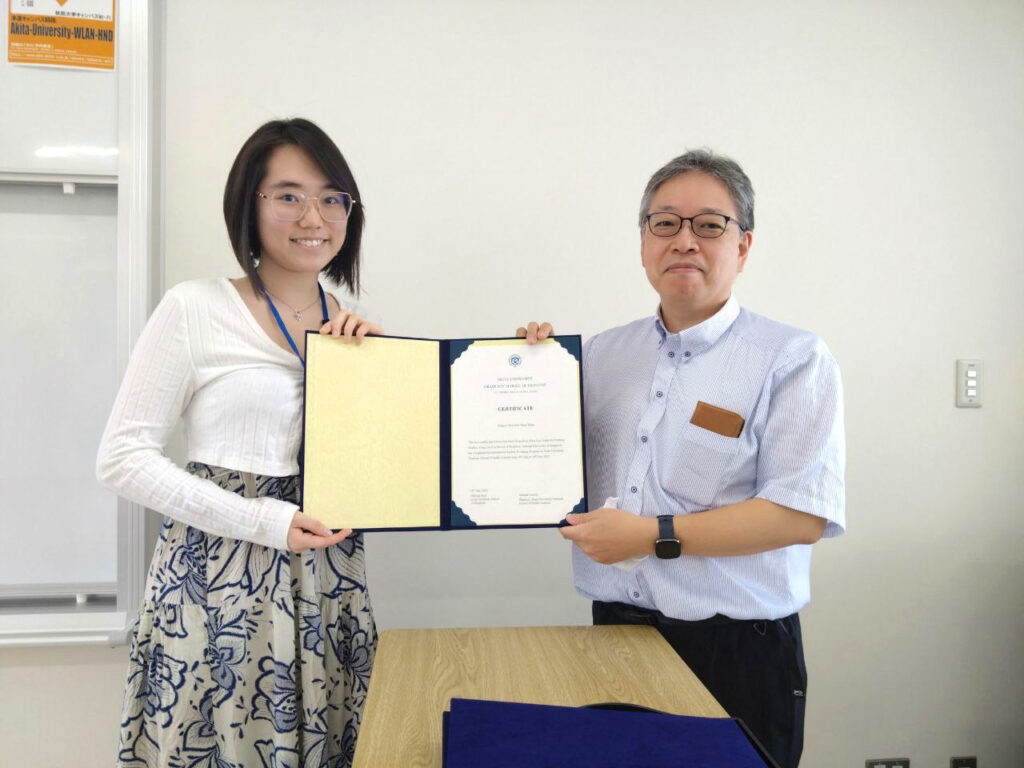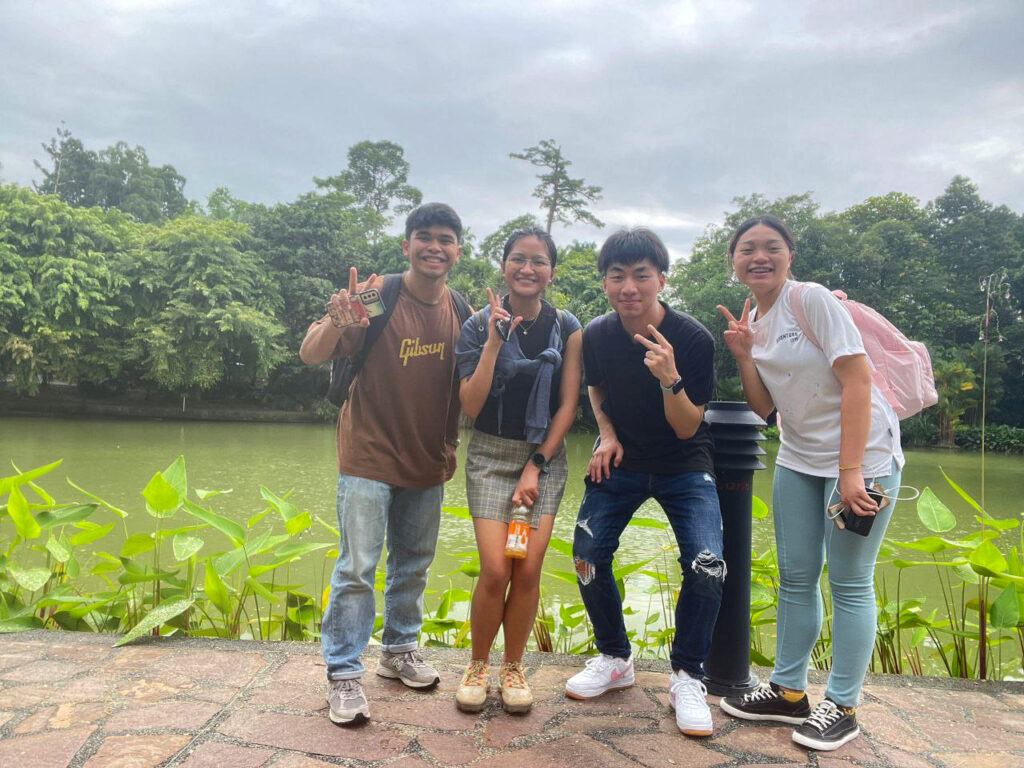After a hiatus of three years, the popular student exchange programme (SEP) makes a comeback.
For the first time in three years, 59 students from the Alice Lee Centre for Nursing Studies (NUS Nursing), National University of Singapore Yong Loo Lin School of Medicine hosted 29 exchange students and three accompanying faculty from seven universities spread across Hong Kong, Japan, South Korea and Taiwan in 2023. In addition to accompanying the exchange students to classes, NUS Nursing student buddies brought them on visits to healthcare facilities and attractions.
Chairperson for Student Exchanges and Community Involvement Projects, Dr Zakir Hussain, said, “We tried doing one round of SEP on Zoom last year—but it didn’t come close to the physical experience. Exchange students not only want to see for themselves the Nursing education and healthcare in Singapore, but also experience our local culture. Which is why we are glad to revive our SEP after Singapore started opening up.”
Restarting the Engine
Dr Zakir continued, “While most of our memorandums of agreement (MOAs) with partner universities lapsed during the COVID-19 period, partners were quick to jump back in and resume exchange with us. We are also currently in discussion to sign new MOAs with others—from Australia, China, Switzerland, and so on. That is not all—we are also in talks with new partners in developing countries. So these are exciting times!”
“But running SEP is a very labour-intensive process,” Dr Zakir explained. “SEP is hugely popular with students, so we are usually oversubscribed. For the selection process—we rigorously review every student’s application, taking into consideration their other engagements in school and community activities, before deciding who to send on exchange or allocate as buddy for the incoming students.”
“To add to that, there are various arrangements we need to make for both inbound and outbound students—travel, accommodations and hospital visits…it is challenging for our small team to support and sustain exchange agreements with say, 15 or 20 universities,” Dr Zakir said. “Luckily, we have an experienced team that is passionate about the programme. But we hope to grow our team so as to ramp SEP back up to pre-COVID-19 levels and beyond.”

All Hands on Deck
Dr Zakir and the Student Exchange Team are looking to expand the programme—at a measured pace. “When it comes to considering partnerships with prospective universities, we try to look out for those with similar education standing as NUS Nursing. But we are increasingly exploring possibilities of conducting SEP with developing countries where nursing happens under circumstances of limited resources. The goal is to offer students exposure and first-hand experience in healthcare systems and Nursing education that are different from ours.
“Student safety is very important to us. So that is always a priority—be it choosing the country, the partner or planning the programme. Of course, student interest is also important because we have to keep in mind that student exchanges are reciprocal—like how after hosting 29 inbound students, 30 of our students went to visit the universities in Hong Kong, Japan and Taiwan in July,” Dr Zakir shared.
Soon, students might not be the only ones going on SEP. “Currently, our faculty don’t accompany the students overseas because our students are independent. They know how to take care of themselves and figure things out even in an unfamiliar environment,” Dr Zakir said. “But we are exploring having our faculty go out with the students—in the hopes of facilitating future partnerships and research collaborations.”
What Our Students Say
“It was interesting to hear from my new friends the differences between Singapore and Japan—hospitals in Singapore use a lot more technology compared to Japan, and how Akita hospitals are slower paced in general. Through their sharing, I gained new perspectives of Singapore and our healthcare system.”
– Chloe Goh, Year 3 Student, NUS Nursing

“Our team of student buddies had a mix of students from different years of study to bring the visiting students around. We had fun—having dinner at our favourite spots or visiting events like the NUS Arts Fest. It would be great if the programme was longer and we had more time together.”
– Zhang Zhe Xin, Class of 2023, NUS Nursing



